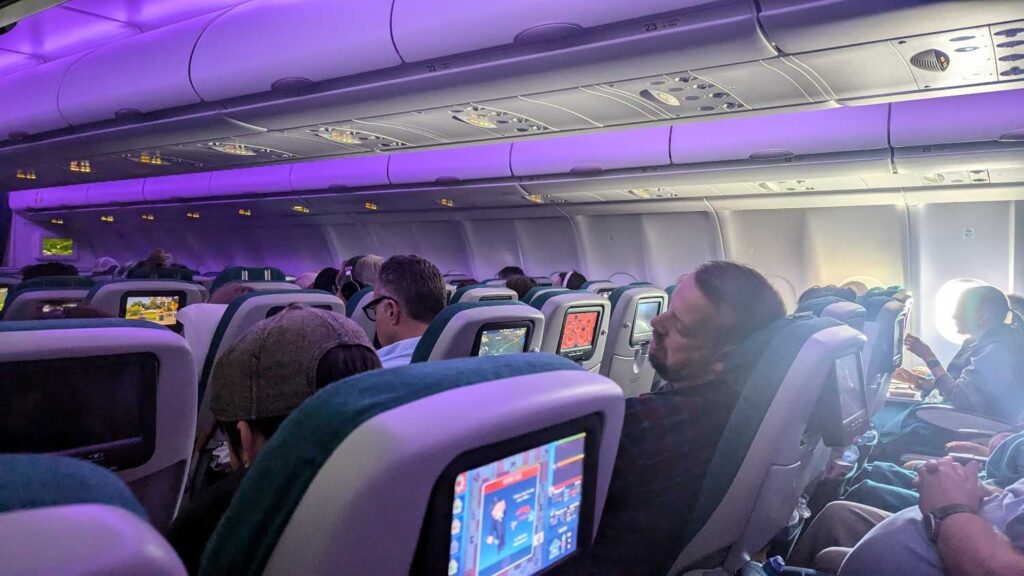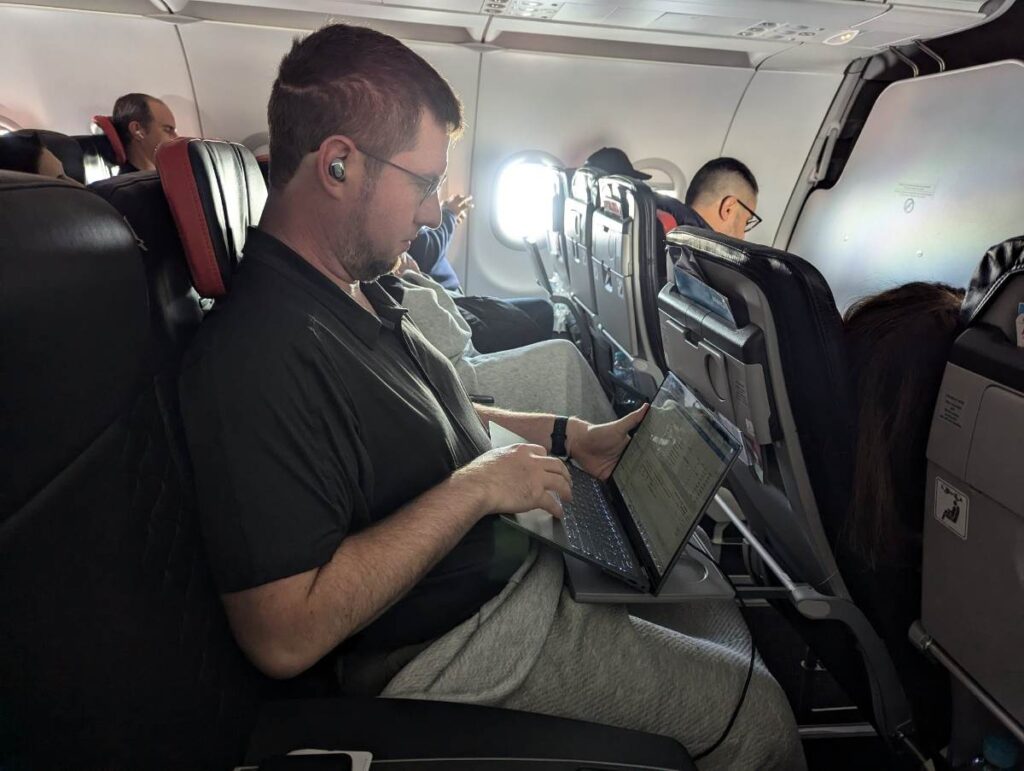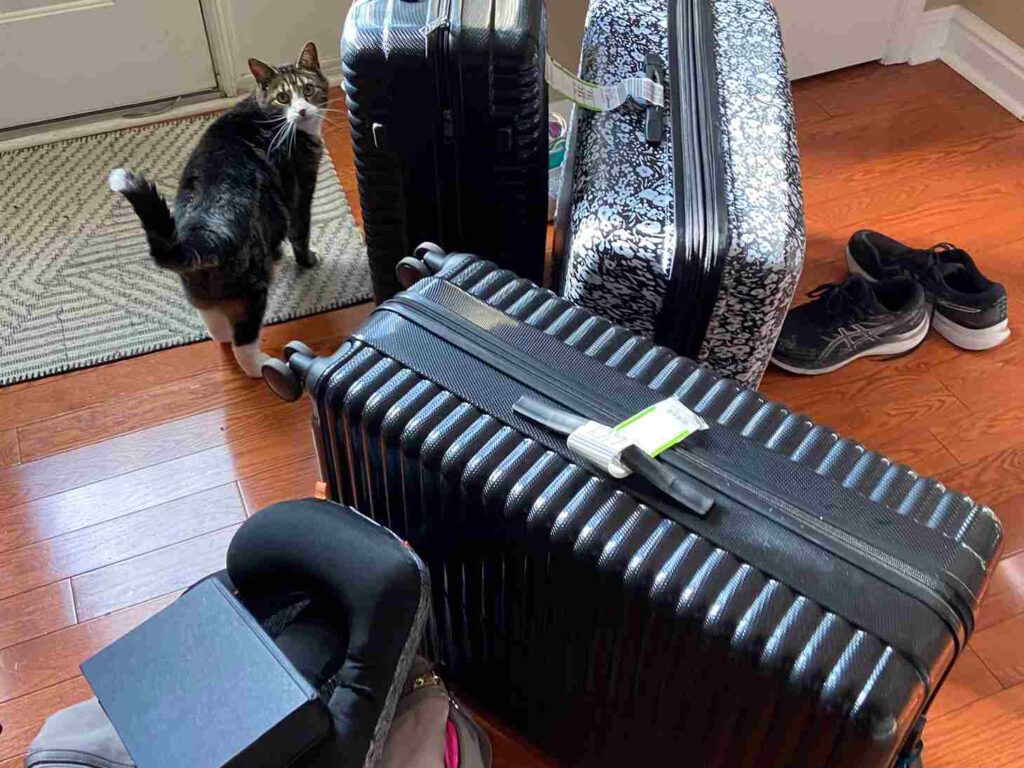Do you consistently have trouble sleeping while on a trip? You are not alone. Whether for business or pleasure, travel and sleep don’t usually get along. There are a number of interesting reasons behind that, too. But don’t fret!
Fortunately, we’ve found super-effective ways to sleep soundly while on a trip and avoid messing up your sleep cycle.
The Quarrel Between Travel and Sleep
Many people plan to have a good rest while away from home. That’s what those summer vacations are for, right? However, surveys have shown that a disappointingly low number of travelers get to fulfill this wish.

It’s not unusual for people to stare at the ceiling of their destination accommodation for hours while waiting for sleep to arrive. That’s because our body is built to resist sleep when we venture into unfamiliar terrain.
Travel and Sleep
Have you ever wondered why even after lengthy waiting periods at the airport, long hours of sitting on a bus, and jet lags, you still struggle to get some sleep when you arrive? There is an in-built survival mechanism responsible.

Your body develops extra vigilance in an unfamiliar environment. According to Martin Seeley, a sleep expert, “Our brains enter ‘protector mode’ especially when we’re traveling with family.”
Travel and Sleep: The Body’s Survival Mechanism
Explaining the survival mechanism, Seeley adds, “In an unfamiliar place, our brains become instinctively more alert, increasing adrenaline to keep us awake and ready to defend ourselves or our loved ones.”

As a result, our sleep pays for the extra vigilance. This situation may continue for the first few days. Ultimately, our sleep cycle bears the brunt and consequently affects the activities we’ve planned out.
ALSO READ: New Research Says Drinking Before Taking a Nap on the Plane Could Hurt You
Your Body Has to Adjust to a New Environment
In many ways, an unfamiliar territory can discourage sleep and alter your sleep cycle. For example, when your body notices a difference in the bedding and the sleeping area, it begins an adjustment program.

Dr. Chelsie Rohrscheib, a sleep expert and neuroscientist, agrees. “You have almost no control over the type of mattress, pillow, and bedding you’ll have while traveling, and you may find it uncomfortable.”
Venturing Into a New Time Zone
Your body works with a 24-hour biological clock and a sleep schedule. Traveling into a new time zone will result in a temporary sleep disorder. That’s because it will take a while for your system to align with this new local time.

According to Dr. Rohrscheib, “You may find it difficult to adjust to your new sleep and wake time, which causes poor sleep for up to a week.”
How to Harmonize Travel and Sleep
Thankfully, there are ways to bring travel and sleep into agreement. Seeley provides a number of ways to “‘trick’ your brain into reducing levels of adrenaline and feeling more relaxed.”

All you need to do is give your body what it wants or what it’s already used to. Here are some helpful tips that will get you to sleep soundly whenever you are away from home.
Replicate Your Home Environment
To do this, start with or prioritize your sleep environment. Make it look as similar to your home environment as possible. Seeley suggests steps like adjusting your room temperature, adjusting the lighting levels, and using a noise machine or earplugs to keep unfamiliar sounds away.

“These small adjustments can help make the new space feel more familiar, which will aid you in falling asleep quicker,” he said.
ALSO READ: How Sleeping Patterns May Impact Long-Term Health
Bring Key Items From Your Home
Seeley also advises that you carry along items from your bedroom that your brain is familiar with. “The pillowcase from your bed won’t take up any room in your suitcase,” he said.

“It will smell like your laundry detergent; this makes it ideal for relaxing your brain and body,” he added. He explained that a familiar smell will help your brain feel safer and relaxed enough to welcome sleep.
Maintain Your Bedtime Routine
Sticking to your normal bedtime routine is crucial to getting quality sleep on a trip. Maintaining your routine signals to your brain when it’s time to power off.

“Engage in the same pre-sleep activities you do at home, whether it’s reading a book, taking a warm shower, or listening to calming music,” Seeley suggested. “This consistency helps cue your brain to prepare for sleep,” he added.
Plan for the New Time Zone
If you are traveling into a new time zone, Dr. Rohrscheib advises that you make attempts to fit into the new time in advance. This means adjusting your sleep schedule to align with your destination’s local time.

“You can also help reset your biological clock by taking a low dose of melatonin at the time you wish to sleep while traveling,” the doctor further suggested. You can take melatonin for a week before you travel.
Reduce Your Screen Time
Finally, Seeley recommends that you stay away from “electronic devices such as smartphones, tablets, or laptops at least an hour before bedtime.”

He explained that the blue light from the screens can limit your body’s melatonin production. Melatonin is the enzyme that helps you sleep. Dr. Rohrscheib suggests that you dim the lights around you for an hour before your sleep time.
You Might Also Like:
Prince William’s Annual Salary Revealed
Motown Group the Four Tops Founding Member Abdul “Duke” Fakir Dies at 88
“16 and pregnant” Alum Autumn Crittendon Dies at 27
Which of These Democrats Will Be Kamala Harris’ Vice President Pick?
Newly Crowned Miss Kansas Calls Out Her Abuser on Stage During Her Speech
